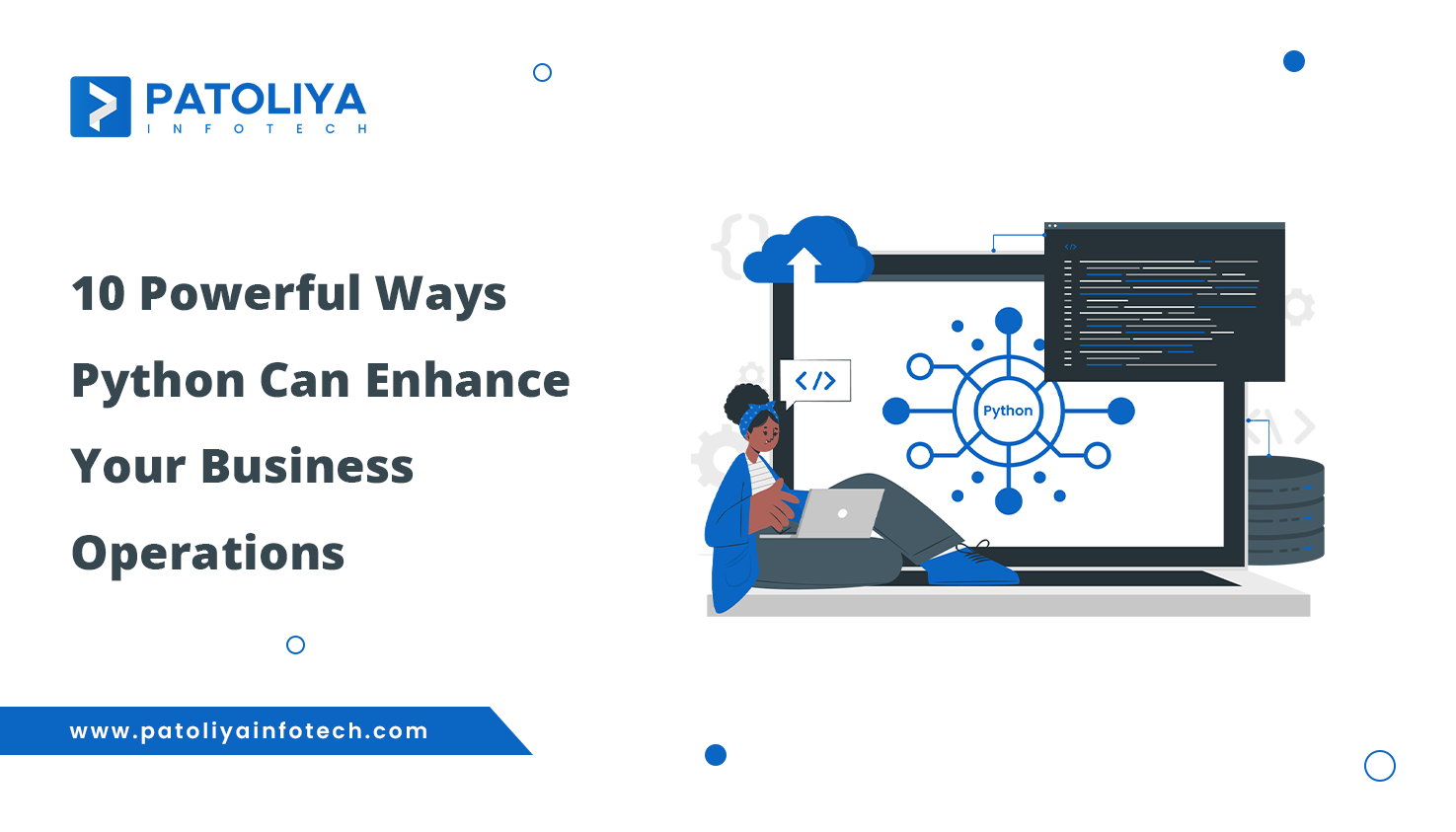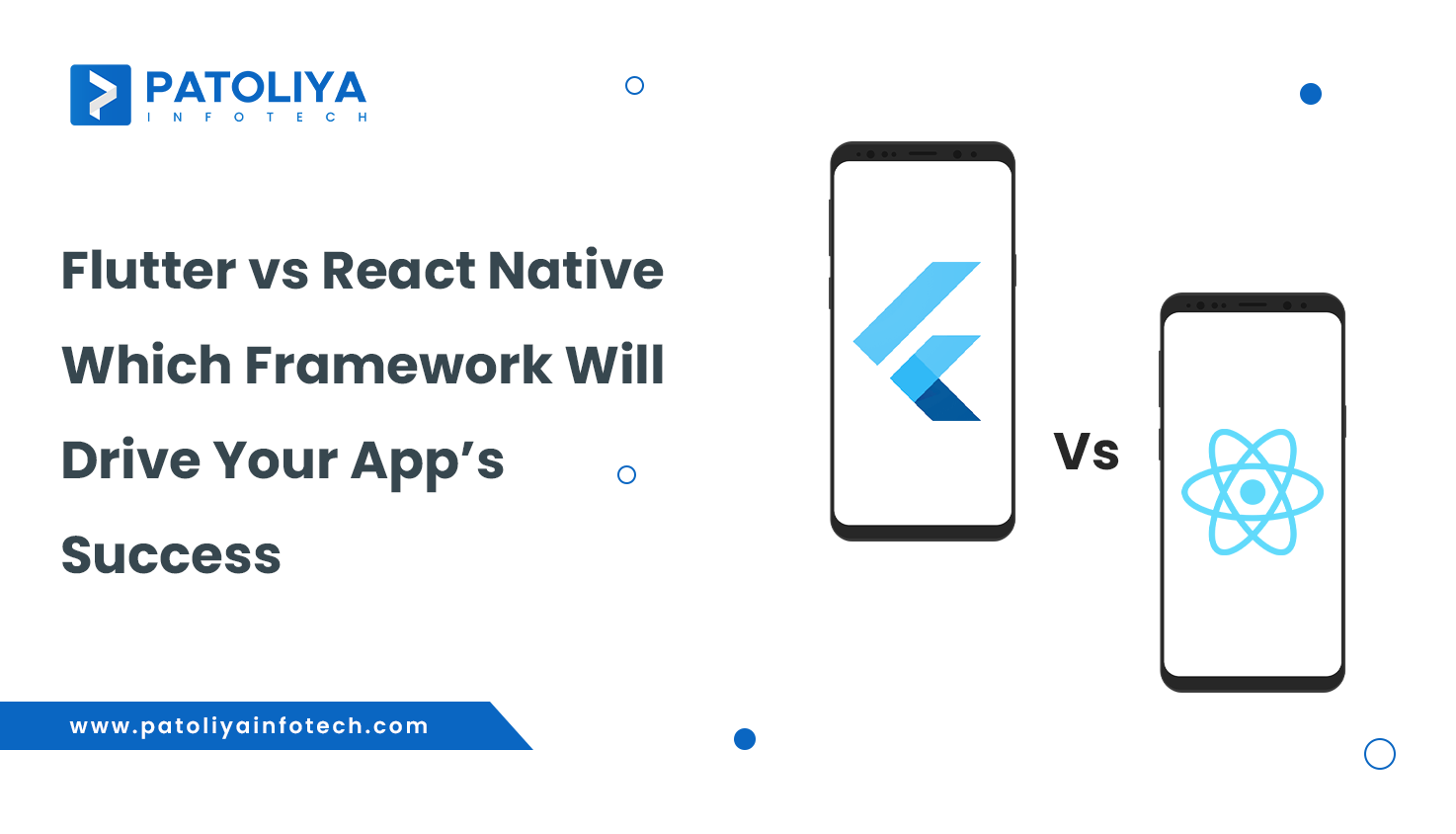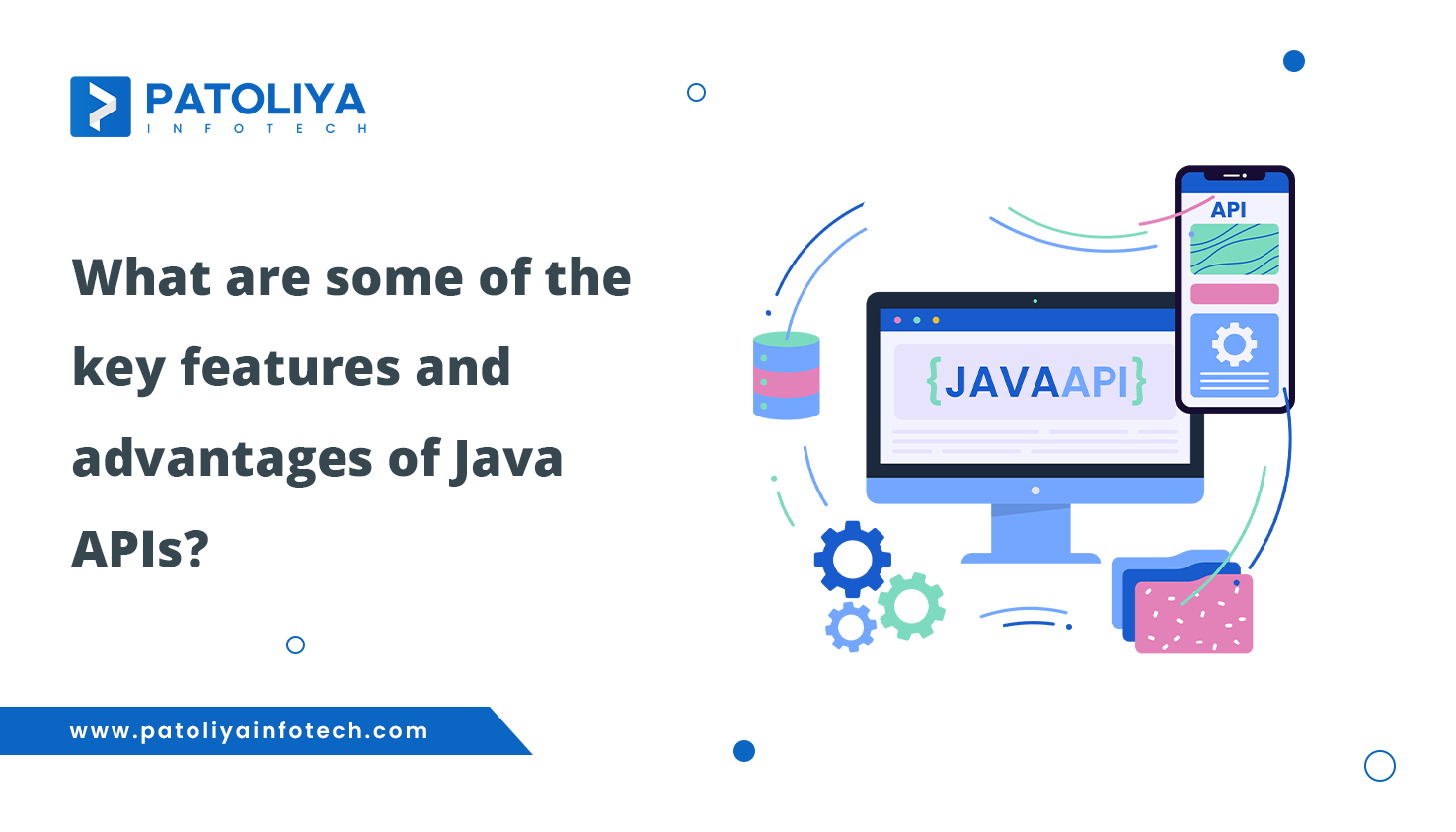Which Framework Offers Better Performance Laravel vs. Codeigniter?
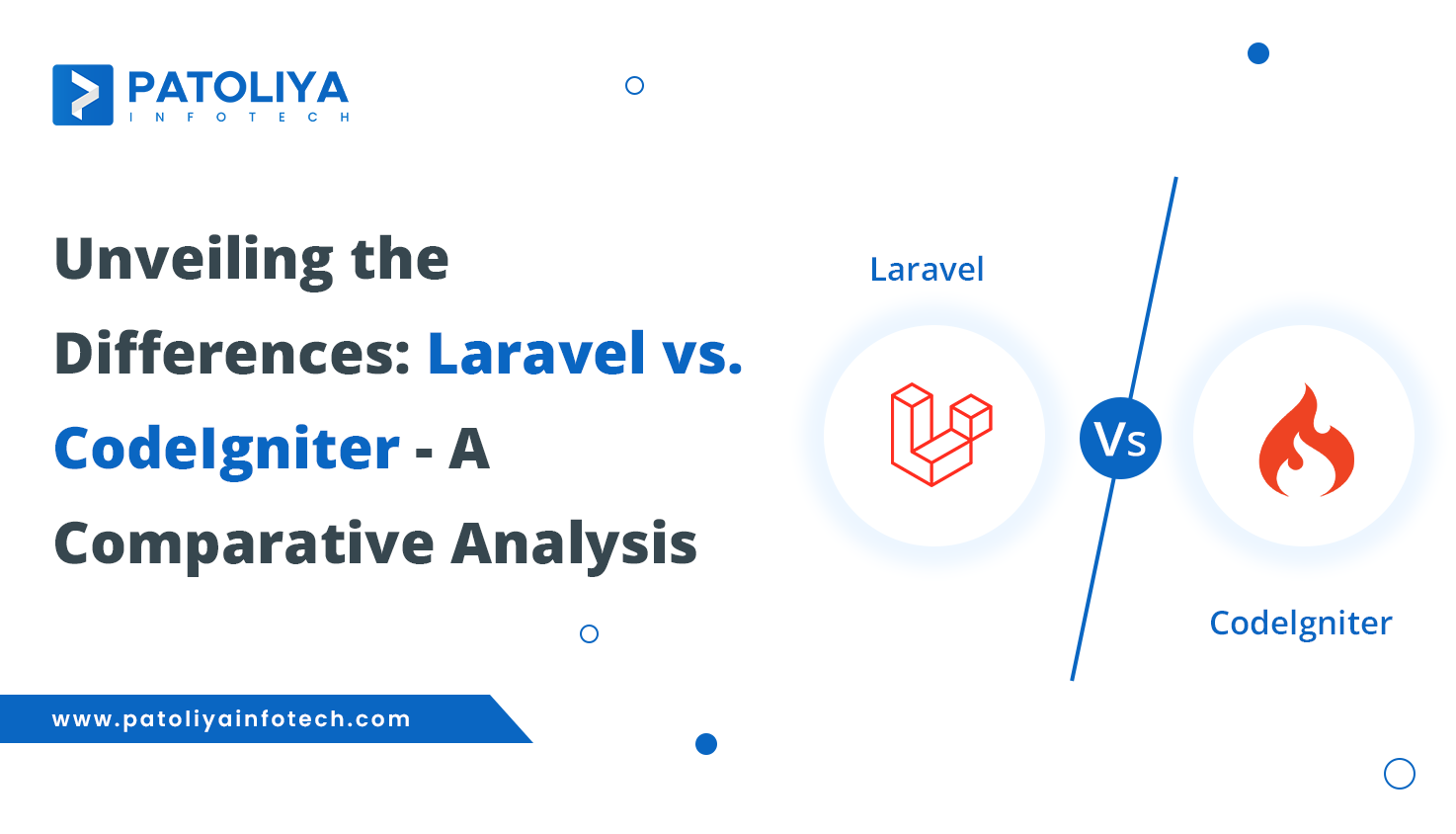
Table of Contents
Laravel and CodeIgniter are the two most popular PHP frameworks for web development, and they each have unique benefits. While Laravel is lauded for its intricate design and broad capabilities, CodeIgniter is known for its simplicity and minimalist approach.
Are you unsure if Laravel is appropriate for projects of a significant size? Do you want to know what advantages CodeIgniter has? Are you debating whether a framework is simpler to learn, CodeIgniter or Laravel? Are you attempting to ascertain whether front-end or back-end development uses Laravel? In search of the fastest PHP framework?
All of these questions and more will be covered in this blog.
Laravel vs. Codeigniter: Decoding the Best Framework for Web Development
What is Laravel?
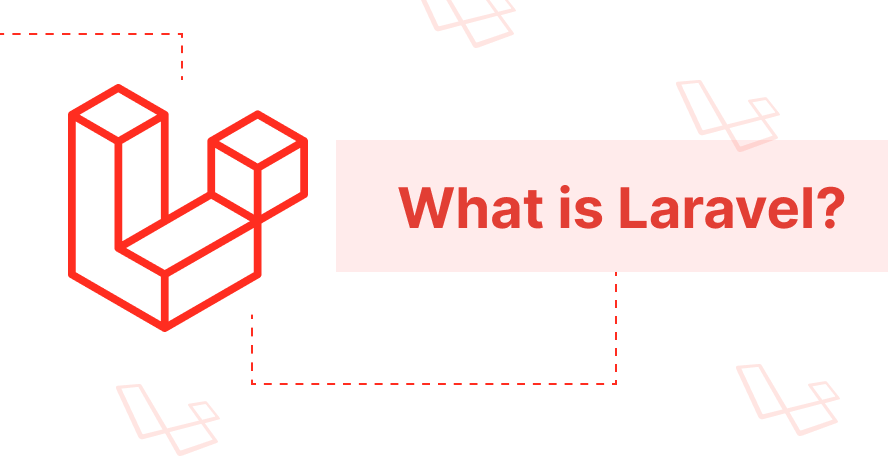
Laravel is a modern PHP framework that was released in 2011. It is well-known for its sophisticated syntax and simple features, which make it easier to accomplish a variety of web development jobs like routing, caching, and authentication.
Despite having a steep learning curve, Laravel is accessible to developers of all skill levels thanks to its extensive documentation and friendly community. Because of its powerful built-in features for testing, database migrations, and task scheduling, Laravel is a preferred option for both inexperienced and seasoned developers.
Key Features of Laravel
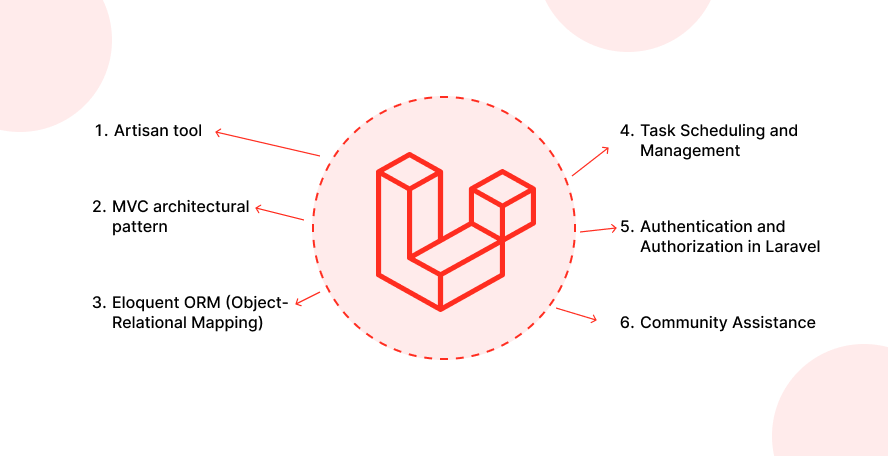
Artisan tool
Laravel's Artisan CLI automates tasks for developers, like Zapier does for users. It's not just about automation; it helps create projects, run tests, migrate databases, and craft custom commands. Artisan boosts efficiency and productivity in development.
MVC architectural pattern
The MVC (Model-View-Controller) pattern splits online apps into three parts:
- Model: Handles business logic and data.
- View: Displays data and acts as the interface.
- Controller: Takes user input and adjusts the view and model.
This setup helps organize code clearly, showing how different parts work together. In short, MVC helps developers create orderly and manageable projects.
Eloquent ORM (Object-Relational Mapping)
In the MVC framework, the "model" works with Eloquent ORM to handle database operations. Eloquent allows you to create, update, and delete records using PHP, without writing SQL queries. It's known for its high performance compared to other PHP frameworks.
Task Scheduling and Management
Task management and scheduling are made easier with Laravel. It easily manages routine tasks like database cleanups and email sending. It is not necessary to use an additional scheduling server because these tasks may be scheduled within Laravel itself. This reduces overhead and facilitates the simple and easy definition of command schedules. Plus, having uniform APIs across queue services makes job management simpler.
Authentication and Authorization in Laravel
With integrated tools for user registration, login, and password reset, Laravel streamlines authentication. In order to efficiently handle permissions and actions, it also provides an easy-to-use and flexible authorization system.
Community Assistance
Laravel has a global community of "web artisans" ready to help. Beyond Laracasts, which offers Laravel screencasts, PHP developers can find support on various forums filled with experienced users eager to assist with any challenges.
You can also consider "Deciding Between PHP vs. Python: Which Language Suits Your Project Best?"
What Are the Pros and Cons of Using Laravel?
To decide between CodeIgniter and Laravel, consider their advantages and disadvantages. Here's a quick rundown of Laravel's pros and cons:
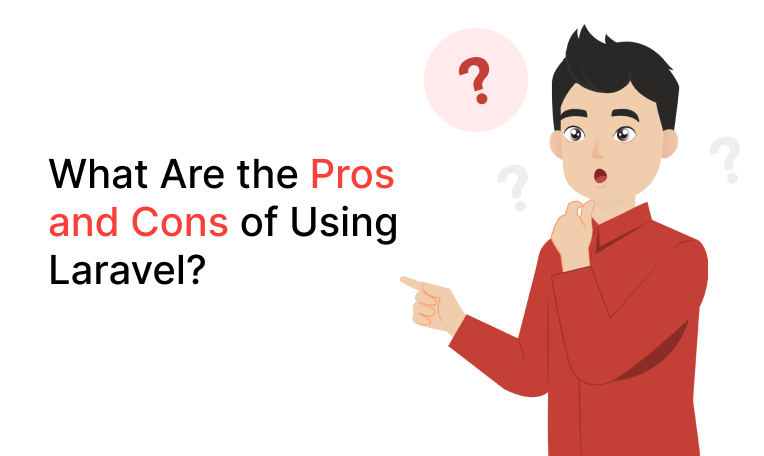
PROS
Strengths of the Laravel Framework:
Flexibility: Laravel's flexibility allows for substantial modification to meet unique project objectives, making it suitable for both small projects and large-scale business solutions.
Authentication and Authorization: Laravel includes a flexible system for user registration, login, and permissions, which simplifies the deployment of security features.
Unit Testing: Enables automated testing with PHPUnit and Pest, increasing application dependability and lowering the likelihood of issues during updates.
ORM (Eloquent): Uses an object-oriented approach to simplify database operations, allowing users to query, insert, update, and delete records without the need for sophisticated SQL.
Blade Templating: Offers an intuitive vocabulary for building data-driven, dynamic views; improves code readability; and decouples presentation from logic.
Jobs and Queues: Effectively manage difficult jobs in the background, combining scalable performance with Redis and Amazon SQS integration.
Task scheduling: It reduces human labor and increases productivity by automating repetitive processes like email delivery and data backups.
CONS
Customization complexity
Tailoring Laravel to meet unique requirements might make it tough to manage large and sophisticated projects.
Performance Impact
Laravel's extensive functionalities can lead to greater performance overhead than lighter frameworks. To maintain high performance, optimizations like caching and fine-tuning are often necessary.
Beginners will have a steep learning curve
Beginners may find Laravel difficult to learn due to its complete features and complex functionalities, which necessitate a major learning effort to grasp the framework.
More weight compared to other frameworks
Compared to many PHP frameworks, Laravel is bulkier, therefore it might not be the best choice for servers with low resources or for developing lightweight applications. Operating and deployment expenses may be impacted by this.
Frequent updates
Laravel's annual major upgrades signify active development, but they can be difficult for large apps to implement due to the enormous effort and testing required for compatibility. Laravel Shift automates migrations, eliminating effort and compatibility difficulties, saving time and money for more seamless updates. For further information, see the article on updating Laravel applications.
Laravel's annual major upgrades signify active development, but they can be difficult for large apps to implement due to the enormous effort and testing required for compatibility. Laravel Shift automates migrations, eliminating effort and compatibility difficulties, saving time and money for more seamless updates. For further information, see the article on updating Laravel applications.
Laravel is used by who?
Laravel finds applications in a variety of sectors:
New ventures: Designed for rapid development and easy access to a large library of packages, making it excellent for agile environments.
Technology firms: Its scalability and built-in technologies make it ideal for developing powerful, high-traffic online apps.
Online retail platforms: Known for providing secure, scalable online shopping experiences with seamless payment integration.
Content Management Systems (CMS): MVC design and dynamic templating allow for customized content workflows.
Academic organizations: Used to create secure, interactive online applications, which are especially useful for managing complicated data linkages and user authentication.
What Is CodeIgniter?
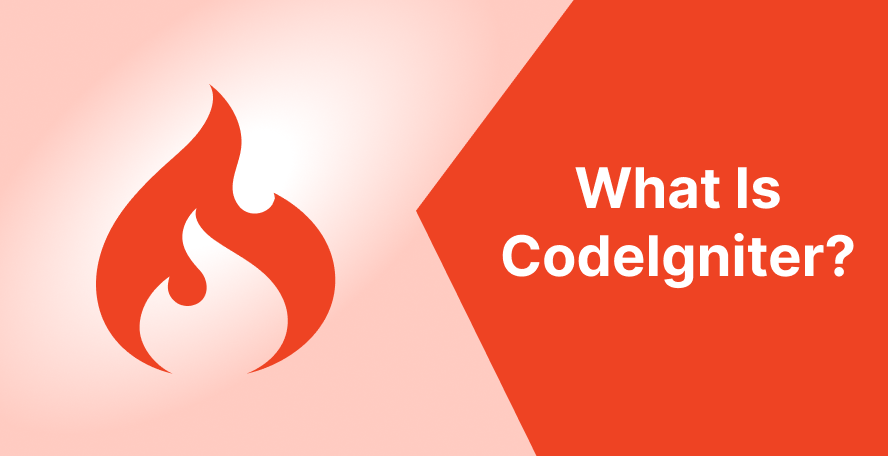
In comparison, CodeIgniter is a lightweight PHP framework that was released in 2006 and is well-known for its efficiency and simplicity. With fewer built-in features, it's great for creating highly customized web applications with less complexity, making it a good option for a direct comparison to Laravel.
CodeIgniter offers a broad library collection for typical activities, as well as an easy-to-use interface and well-organized structure. It prioritizes speed and efficiency by reducing code. While based on the MVC architecture, it allows developers to modify applications to their preferences.
Key Features of CodeIgniter
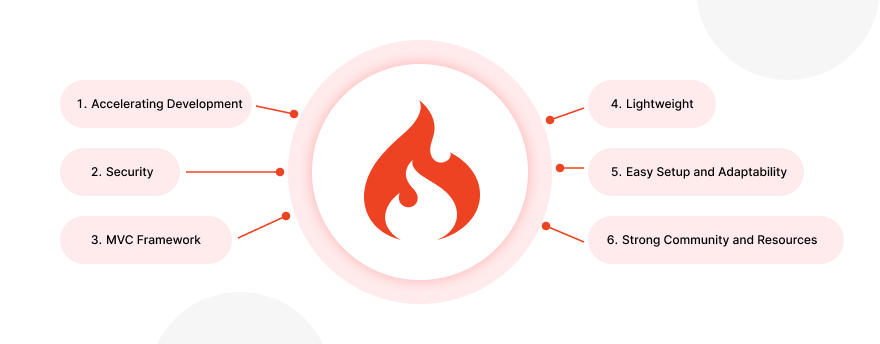
Accelerating Development
CodeIgniter accelerates web application development, allowing organizations to deploy goods or services more quickly, lowering time-to-market.
Security
CodeIgniter has built-in security features like as data encryption, XSS filtering, CSRF protection, and defense against common vulnerabilities, which reduce the chance of security breaches and data concerns.
MVC Framework
CodeIgniter utilizes MVC (Model-View-Controller) architecture, separating application logic from presentation. This enables developers to work on components independently, enhancing development efficiency. The framework maintains database-driven models, user interface views, and application controllers separately, promoting modularity, manageability, and scalability.
Lightweight
When compared to other PHP frameworks, CodeIgniter stands out for being a lightweight framework that uses less server resources. This is perfect for efficiency-focused developers as it guarantees optimal server speed while providing all features.
Easy Setup and Adaptability
With CodeIgniter's seamless configuration, getting started is a breeze. Simple configuration files allow for easy modification of its behavior, and comprehensive documentation makes customization easier for developers of all skill levels.
Strong Community and Resources
Take advantage of CodeIgniter's robust documentation and vibrant developer community, which offer helpful assistance and solutions. Regardless of your level of experience, get advice and best practices to overcome obstacles.
You may also be interested in: React vs. Vue.js: Which Framework Offers the Best Developer Experience?
What Are the Pros and Cons of Using CodeIgniter

PROS
User-Friendly: CodeIgniter stands out for its simplicity and intuitive approach. Its simple learning curve appeals to developers of all levels, allowing for faster project creation with less coding time and effort. Clear documentation and a well-organized framework increase its accessibility, allowing developers to quickly comprehend topics and build applications with ease.
Flexible and adaptable
CodeIgniter offers significant flexibility, allowing developers to build apps to unique business requirements with little setup. Its configurable nature enables for the easy addition or removal of components, making it perfect for enterprises looking for tailored solutions.
Compact and Efficient Framework
CodeIgniter, a lightweight framework with a minimal footprint, is well known for its efficiency. Its little size, only a few megabytes in download size, provides quick performance. It promotes speed by removing extraneous features, making it easier to create fast-loading web apps and improving the user experience.
Excellent documentation and easy-to-learn
CodeIgniter has excellent, well-structured documentation, making it simple for developers to understand and use. Its concise syntax and logical structure shorten the learning curve, making it perfect for novices for rapid project development.
CONS
Lacks attention on maintainability
CodeIgniter is easy, but it does not enforce rigorous code organization or naming rules, which may result in codebases that become more difficult to manage as they develop.
Limited libraries
CodeIgniter provides basic libraries but lacks the comprehensive packages provided in frameworks such as Laravel and Symfony, necessitating additional code for advanced features and increasing development time.
Lack of Built-In ORM
CodeIgniter lacks a built-in ORM. Its Query Builder is less powerful, and integrating third-party ORMs increases complexity for developers who prefer the Active Record design.
Lagging in modern development trends
CodeIgniter, despite updates, is often criticized for not keeping up with modern web development trends like RESTful support and newer PHP features, making it seem outdated compared to newer frameworks.
CodeIgniter is used by who?
Here are some examples of CodeIgniter's uses:
Small and Medium Enterprises (SMEs): SMEs utilize CodeIgniter because of its minimal configuration requirements and simple setup, which enable speedy web app development with few resources.
Students and Educational Institutions: CodeIgniter is preferred by both students and educational institutions because to its comprehensive documentation and easy learning curve, which facilitate learning and project development.
Freelancers and Independent Developers: Because of CodeIgniter's versatility and ease of use, freelancers and independent developers prefer it for quick development and deployment.
Startups: CodeIgniter is preferred by startups because to its rapid development speed and high performance, making it perfect for rapidly developing prototypes and launching products.
online Development Agencies: To ensure stability and robustness in online projects, web development agencies rely on CodeIgniter because of its mature ecosystem and dependability.
Also read WordPress vs. Other CMS Platforms: Which One is Right for You?
A Showdown Between Laravel and CodeIgniter: Examining the Differences
| EXAMINATION | LARAVEL | CODEIGNITER |
| Speed to market | Laravel makes development faster with its strong built-in tools such as Eloquent, Blade templating, and others. | CodeIgniter offers a simpler environment, though with fewer built-in tools, for a streamlined development experience. |
| Continual development | Laravel has a big community that's always busy making updates and getting better. | CodeIgniter is still looked after, but its community is smaller. |
| Developer availability | Laravel has more developers available because it has a bigger community. | CodeIgniter has fewer developers available because its community is smaller. |
| Inherent functionalities | Laravel comes with a lot of useful features already included, like sign-in systems, directing web traffic, and handling databases. | CodeIgniter has a simpler base, needing extra tools for most functions. |
| Adaptability | Laravel is powerful, but it's strict in its approach, which can limit flexibility. | CodeIgniter, on the other hand, offers more flexibility, but you may need to build some features yourself. |
| Efficiency | Laravel performs really well because it has strong tools for caching and optimizing code. | CodeIgniter is famous for being really fast and not using up a lot of resources. |
| Embedded security measures | In Laravel, you get solid security features such as CSRF protection and authentication. | CodeIgniter has a few security features, but you might need to tweak them to suit your needs. |
| API compatibility | Laravel comes with built-in tools like Passport for making APIs. | CodeIgniter supports API development too, but you might need extra libraries. |
| Cost of development | Laravel developers typically charge around $59 per hour on average, but their rates can reach $100 or more per hour. | A CodeIgniter developer might ask for about $61 per hour or possibly more. |
Laravel vs CodeIgniter: performance
A performance comparison between CodeIgniter 4 and Laravel reveals some interesting differences. PHP 4 or 5 can be used with CodeIgniter, which has low server requirements and smooth validation, making the work of programmers much easier. It is unique among frameworks in that it provides hassle-free framework installation and flexibility in function exploration.
Conversely, Laravel offers a unique set of benefits. It is especially scalable, outperforming CodeIgniter in this regard. Laravel makes managing more complex jobs easier for developers with tools like Artisan, HTTP support, Eloquent ORM, and MVC design.
Selecting Between CodeIgniter and Laravel: A Developer's Choice
Developers often favor CodeIgniter for its user-friendly nature. Although Laravel offers simplicity too, it comes with stricter guidelines. CodeIgniter allows more freedom and boasts superior error management. Thus, while CodeIgniter is usually the preferred choice, developers enjoy the challenge of working with both frameworks.
Wrap Up
In the debate of PHP frameworks, choosing between CodeIgniter and Laravel can be both daunting and thrilling. CodeIgniter shines with its simplicity and speed, while Laravel excels in complex and feature-rich projects. Patoliya Infotech provides specialized hosting for both frameworks, ensuring top performance, security, and dedicated assistance.
Don't hesitate, visit Patoliya Infotech now to supercharge your project and ensure a secure online presence.

